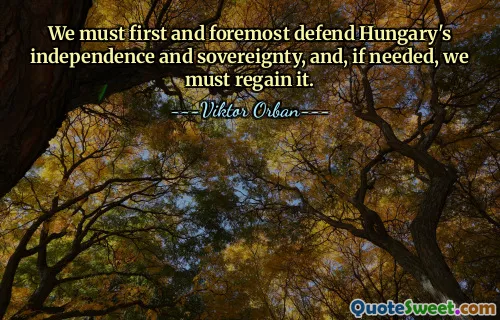Viktor Orbán is a prominent Hungarian politician, serving as the Prime Minister of Hungary for multiple terms since 2010, with a previous stint in the late 1990s. He is known for his leadership of the Fidesz party, which has adopted a right-wing nationalist platform. Orbán has been a crucial figure in shaping Hungary's political landscape, often advocating for traditional values and a strong national identity. His approach includes increasing state control over various aspects of society and the economy, which has attracted both support and criticism. Under Orbán's governance, Hungary has experienced significant changes in its legal and political systems. His administration has been criticized for undermining democratic institutions, reducing media freedom, and curbing the influence of NGOs. These actions have raised concerns among European Union officials and human rights organizations about the rule of law in Hungary and the state of democracy. Despite facing criticism, Orbán retains considerable support among his constituents, who appreciate his focus on national sovereignty and economic stability. He has also been vocal about immigration policies, promoting a hardline stance against illegal immigration. His tenure has sparked a broader conversation about nationalism and populism in Europe, positioning Hungary as a case study in the rising tensions between EU values and national interests.
Viktor Orbán, born on May 31, 1963, is a Hungarian politician noted for his prolonged role in politics. He first became Prime Minister in 1998 and returned to power in 2010. He has effectively positioned himself as a key leader within Hungary, promoting conservative values.
As the leader of the Fidesz party, Orbán focuses on issues such as national sovereignty and economic independence. His controversial policies and rhetoric have positioned Hungary at the forefront of the debate concerning the balance between national interests and European Union obligations.
Orbán's approach, particularly regarding immigration and cultural identity, resonates with many Hungarians, allowing him to maintain a significant base of support. This has made him a central figure in ongoing discussions about democracy, nationalism, and governance in contemporary Europe.
Se mer »
Today Birthdays
1955 -
Max Lucado
1946 -
John Piper
1842 -
William James
1907 -
Abraham Joshua Heschel
1887 -
Aldo Leopold
1755 -
Alexander Hamilton
1976 -
Alethea Kontis
1971 -
Mary J. Blige
1825 -
Bayard Taylor
1943 -
Jim Hightower
1885 -
Alice Paul
1923 -
Carroll Shelby
1928 -
David L. Wolper
1954 -
Kailash Satyarthi
1972 -
Amanda Peet
1946 -
Naomi Judd
1970 -
Malcolm D. Lee
1955 -
Christian Marclay
1973 -
Rahul Dravid
1987 -
Jamie Vardy
1942 -
Clarence Clemons
1992 -
Fatima Sana Shaikh
1948 -
Larry Harvey
1930 -
Rod Taylor
